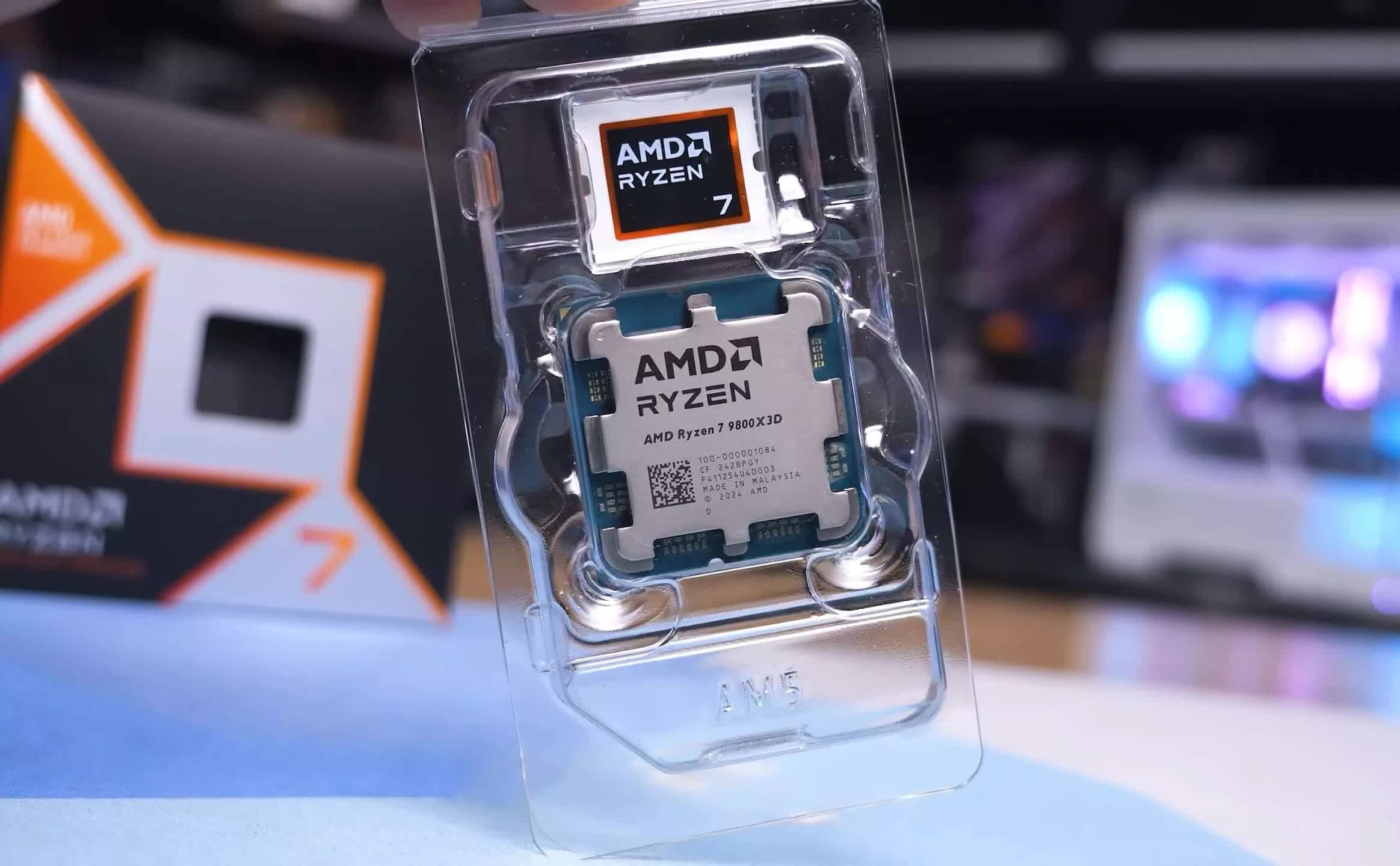What just happened? AMD's latest quarterly figures reveal it is going from strength to strength across desktop, mobile, and server markets. The numbers were revealed by Mercury Research's new report, and they suggest that the company is steadily eating into Intel's share.

Starting off on the desktop front, AMD's consumer x86 CPUs now command a 28.7% unit share, skyrocketing from just 19.2% in 2023. The last quarter saw it at 23%, so this latest jump is pretty meteoric. AMD's revamped Ryzen portfolio covering value to enthusiast segments seems to be paying dividends.
The 3D V-Cache-equipped Ryzen X3D parts have been a particular hit with gamers and power users. And with the recent Ryzen 9000 series and flagship 9800X3D launch, AMD seems poised to keep making inroads against Intel in the DIY desktop space. The Ryzen 9000 series failed to hit AMD's claimed numbers when it launched, leading to disappointed buyers, but the company has now redeemed itself with the 9800X3D, which we've crowned the "new gaming CPU king" in our review.

As for mobile, AMD chalked up a 22.3% share and 19.2% revenue share in Q3 2024, up from 20.3% and 17.7%, respectively, last quarter. The Ryzen AI 300-series APUs with their blend of performance and AI capabilities look to be hitting the sweet spot. More mainstream and high-end Ryzen AI mobile offerings are tipped for CES 2025, which should give the company another shot in the arm against Intel and Qualcomm's Snapdragon silicon.
Speaking of Intel, the company is going through some serious turmoil with widespread layoffs and quarter after quarter of bleak forecasts. The grand US chip factory plans enabled by the CHIPS Act funding also appear to be in disarray. This should translate to even greater gains for AMD down the line – since Qualcomm's share in the x86 processor market is minuscule, any increase in sales and market share realized by AMD essentially comes at the expense of Intel's existing dominance.
Moving on to the server CPU market, AMD's share climbed to 24.2% in Q3 2024, up from 23.3% a year prior. More impressively, the revenue share spiked to a hefty 33.9%, compared to 31.2% in Q3 2023. AMD also launched EPYC 9005 "Turin" processors last month based on Zen 5 architecture, so you can expect these numbers to spike even more.
AMD now commands 28.7% of desktop CPU market, server chips also see significant gains